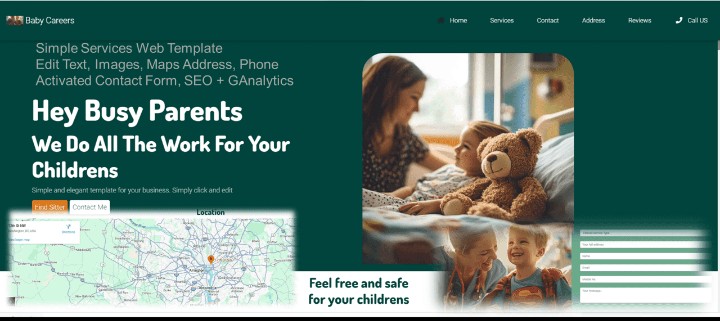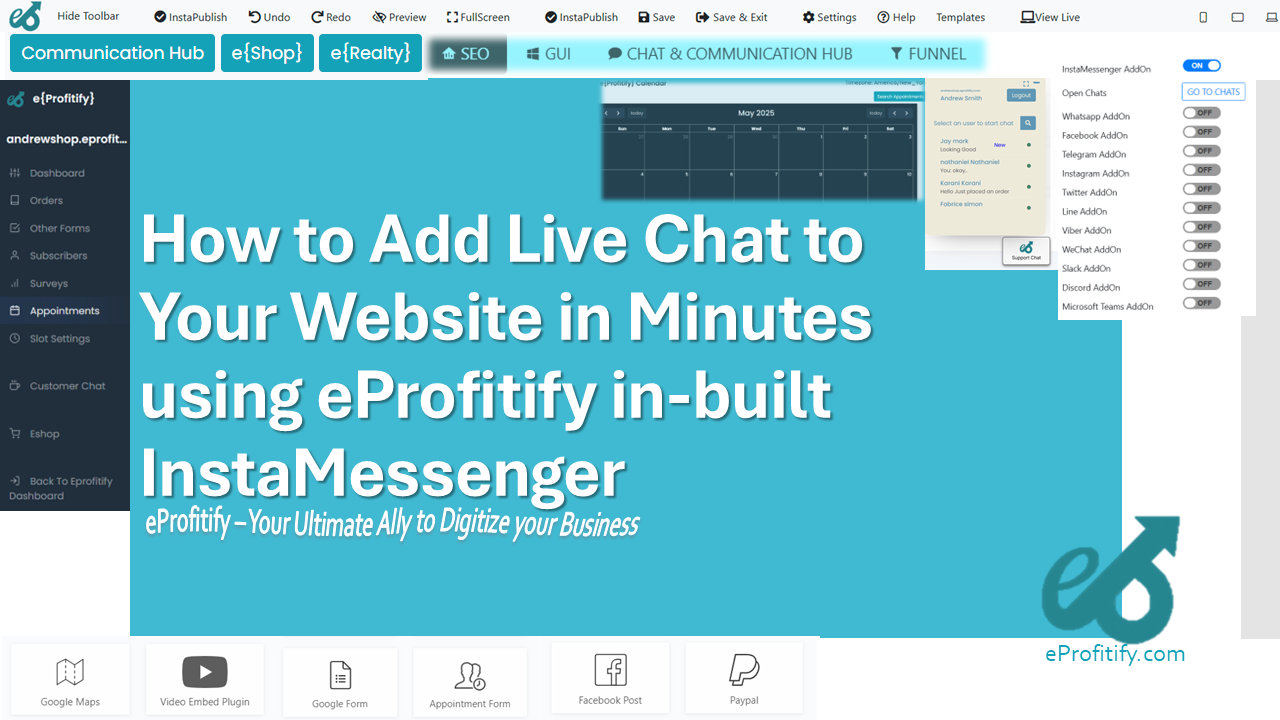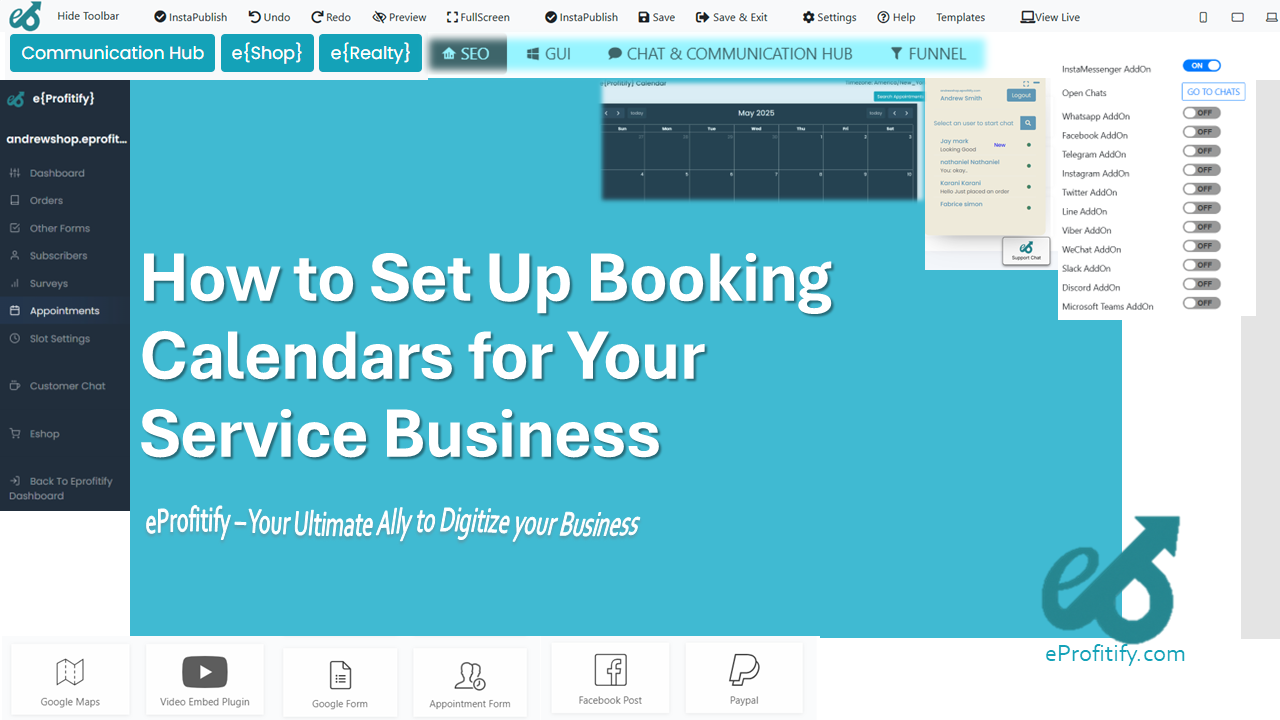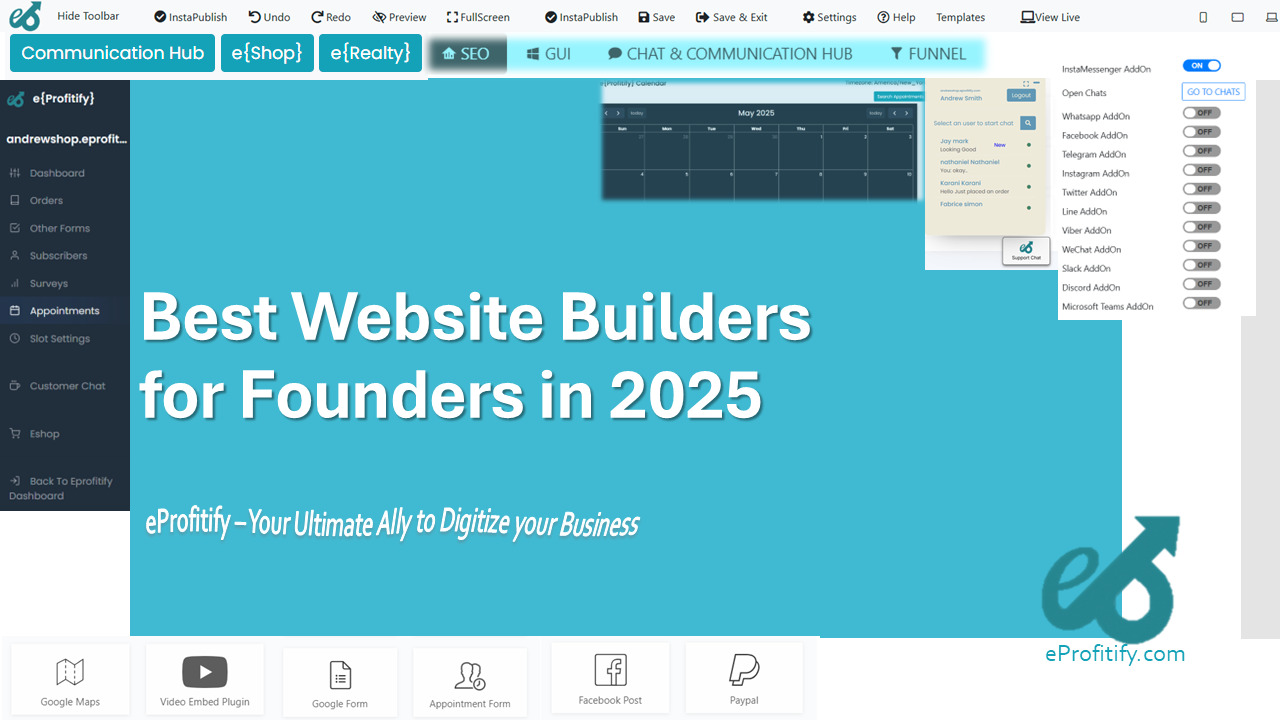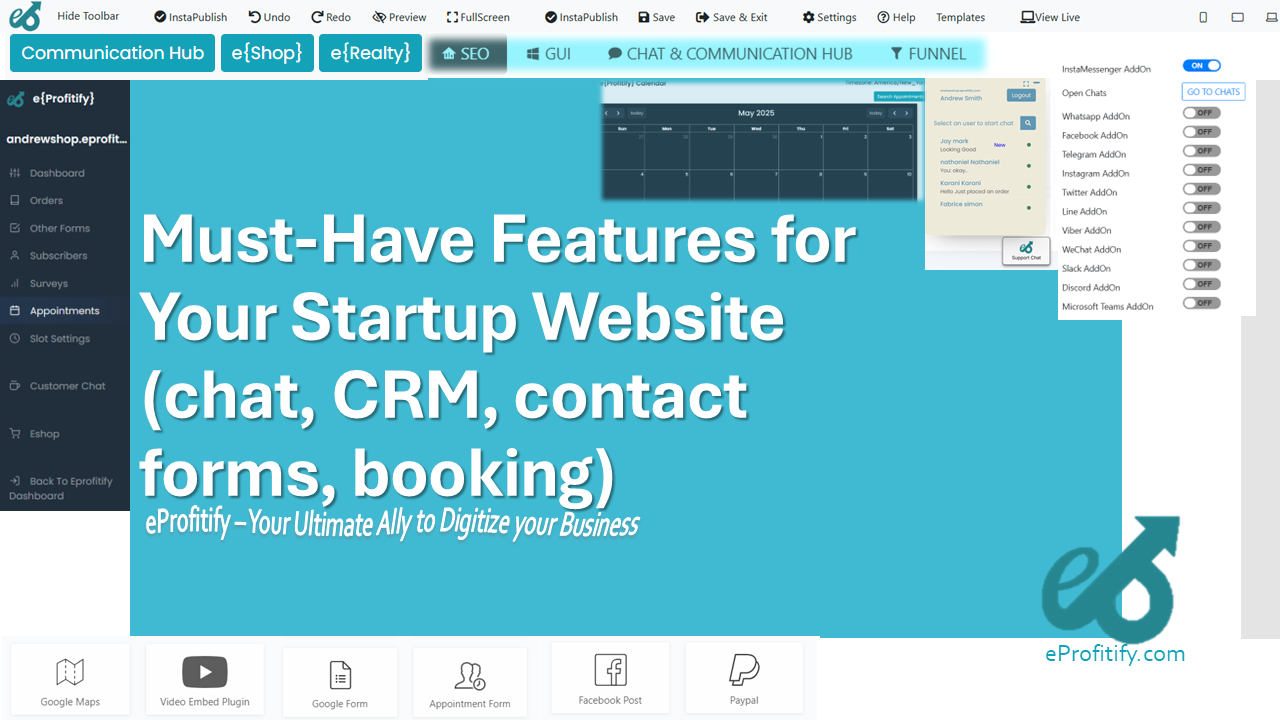Should You Build Your Startup Website Yourself or Hire a Developer?
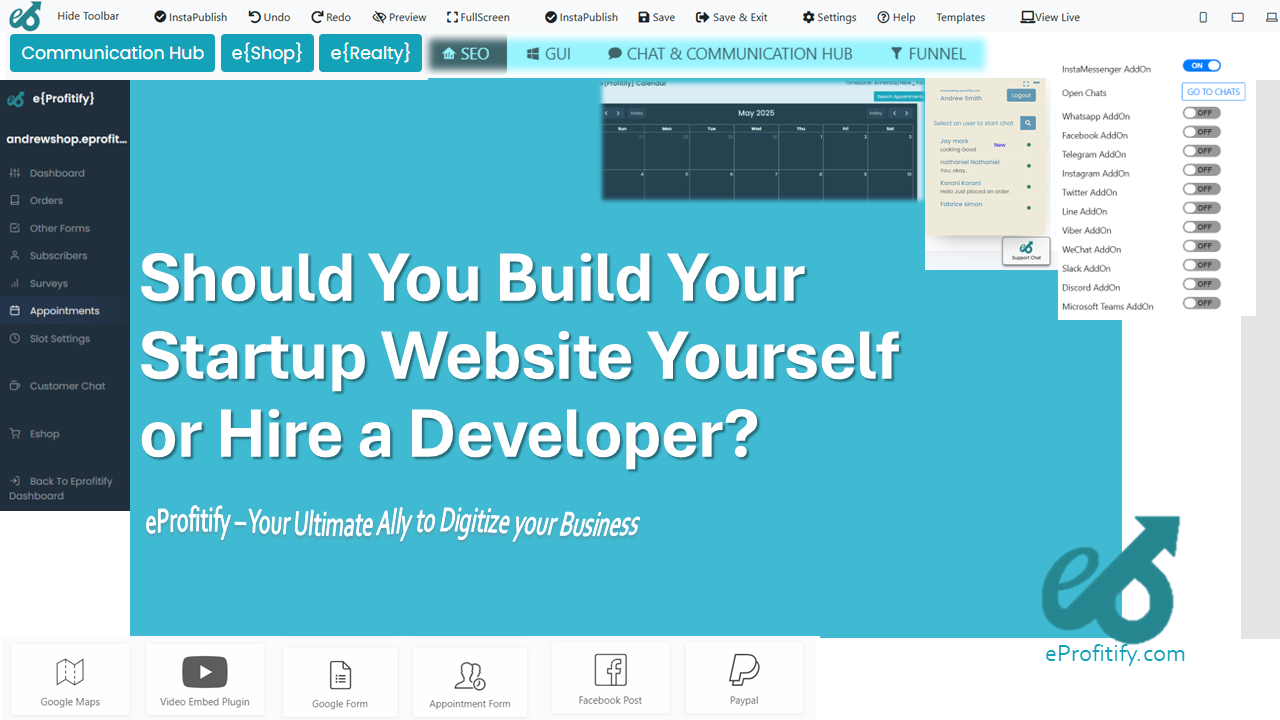
Should You Build Your Startup Website Yourself or Hire a Developer?
The dilemma of whether to build a startup website yourself or hire a developer is a critical decision for entrepreneurs. With 43% of small businesses using DIY platforms (W3Techs, 2023) and 8% of startups failing due to technical issues (CB Insights, 2021), the stakes are high. This article weighs the pros and cons of DIY vs. professional development and introduces Eprofitify, a leading all-in-one platform that bridges the gap between simplicity and functionality.
Option 1: Building Your Website Yourself
Pros:
- Cost-Effective: DIY platforms like Wix or Squarespace start at $12–$40/month, ideal for bootstrapped startups.
- Speed: Launch a basic site in days without coding. Templates and drag-and-drop editors simplify design.
- Control: Make real-time updates without relying on third parties.
Cons:
- Limited Customization: Templates restrict unique branding; scaling may require migration.
- Technical Gaps: No coding expertise? Advanced features (e.g., APIs, custom databases) become roadblocks.
- Time Investment: Learning curves and trial-and-error may delay launches.
Stats:
- 64% of DIY users report needing developer help for complex features (Clutch, 2022).
- eCommerce transaction fees on DIY platforms eat 1–3% per sale.
Option 2: Hiring a Developer
Pros:
- Tailored Solutions: Agencies build scalable, custom sites aligned with business goals.
- Technical Expertise: Developers handle SEO, security, and integrations (e.g., CRM, payment gateways).
- Time Savings: Focus on core operations while professionals manage the build.
Cons:
- High Costs: Freelancers charge $50–$150/hour; agencies cost $15k–$30k (Upwork, 2023).
- Communication Risks: Misaligned expectations may lead to delays or revisions.
- Ongoing Expenses: Maintenance and updates require retainer fees.
Stats:
- 32% of startups cite poor developer communication as a key project risk (Forbes, 2022).
Option 3: Eprofitify – The Best of Both Worlds
Eprofitify merges the affordability of DIY with the sophistication of professional development, offering startups an enterprise-grade toolkit under one roof.
Key Features:
- Instant Messaging: Engage customers via real-time chat without third-party apps.
- Appointment Management: Sync calendars, send reminders, and automate bookings.
- eCommerce Suite: Sell products with built-in inventory tracking, SSL security, and multi-payment gateways.
- CRM Integration: Track customer interactions and automate marketing campaigns.
- Scalability: Upgrade features as your startup grows—no coding required.
Why Eprofitify Stands Out:
- Time-to-Market: Launch a polished site in days, not months; optimize SEO and UX metrics using AI tools.
- Cost Efficiency: Plans start at $49/month, eliminating freelance or agency fees.
- All-in-One Toolkit: Reduces dependency on fragmented tools (e.g., Calendly, HubSpot, Shopify).
Stats:
- Businesses using Eprofitify report a 35% faster launch time and 20% higher conversion rates (Internal Data Insights, 2023).
Comparison Chart
| Factor | DIY Platforms | Hiring a Developer | Eprofitify |
|---|---|---|---|
| Cost | $12–$40/month | $5k–$30k+ | $49–$299/month |
| Customization | Limited | High | Moderate to High |
| Technical Support | Community forums | Dedicated | 24/7 Chat & Email |
| Scalability | Poor | Excellent | Excellent |
| Time to Launch | 1–2 weeks | 1–3 months | 1–4 weeks |
Conclusion
Your choice depends on budget, technical skills, and growth plans.
- DIY: Suitable for MVP testing or simple sites with minimal features.
- Developer: Ideal for complex, scalable solutions if budget permits.
- Eprofitify: The optimal middle-ground hybrid, offering advanced tools (CRM, eCommerce, appointments) without draining resources.
For startups seeking a cost-effective, all-in-one solution, Eprofitify empowers founders to focus on growth while managing their digital presence seamlessly. Visit Eprofitify today to explore how integrated tools can elevate your startup’s trajectory.
Statistics sources: W3Techs, CB Insights, Clutch, Upwork, Forbes.

